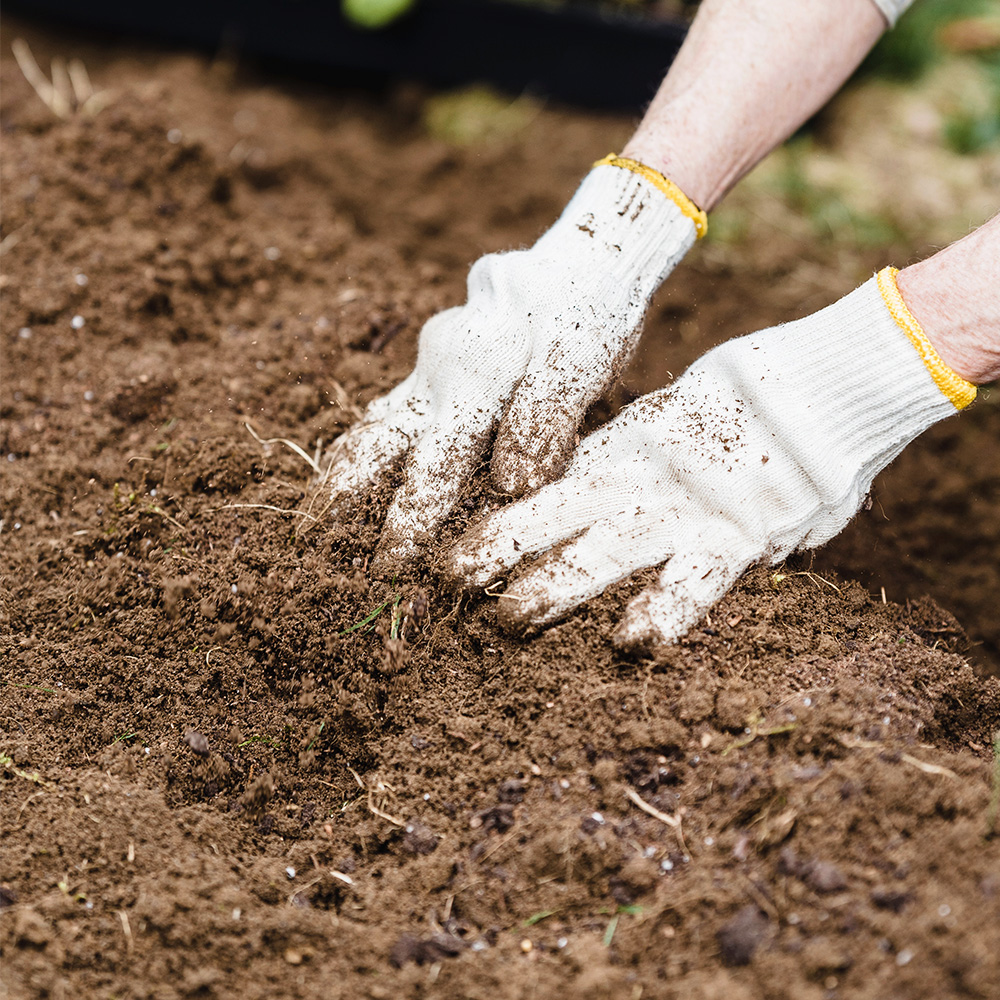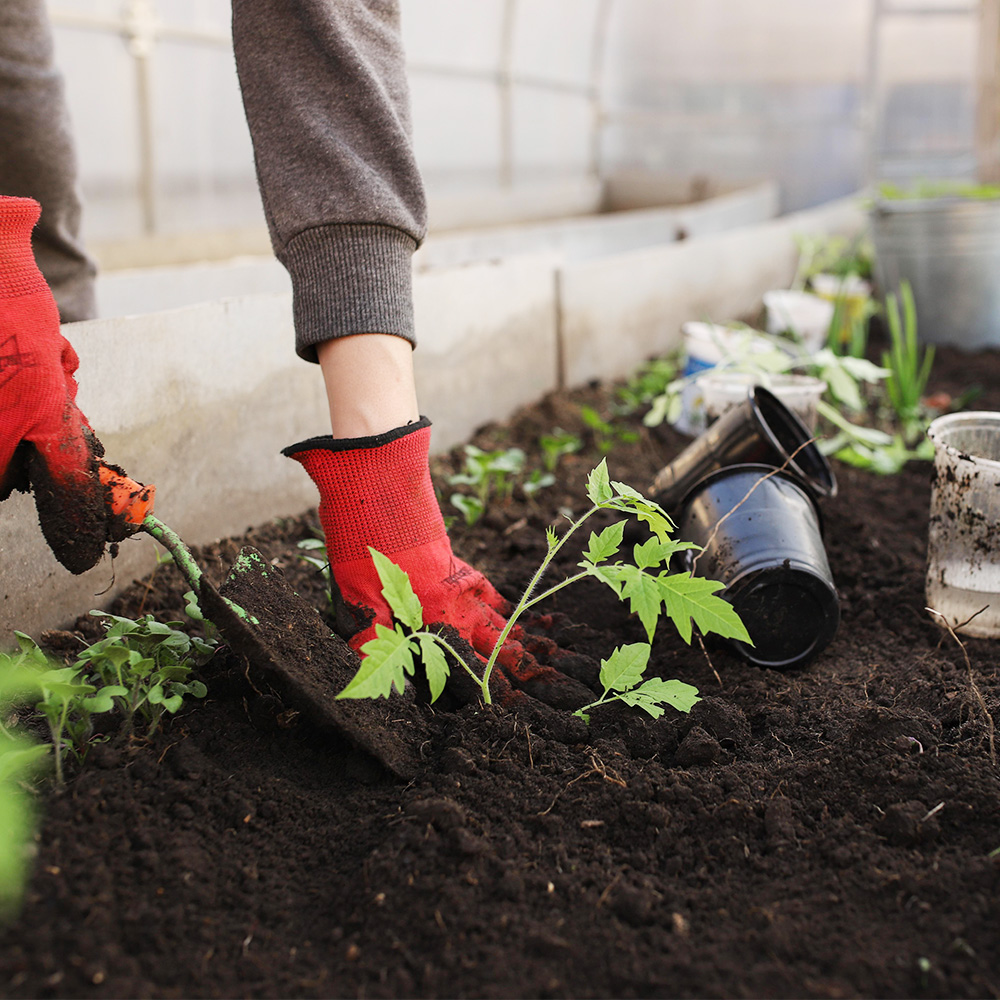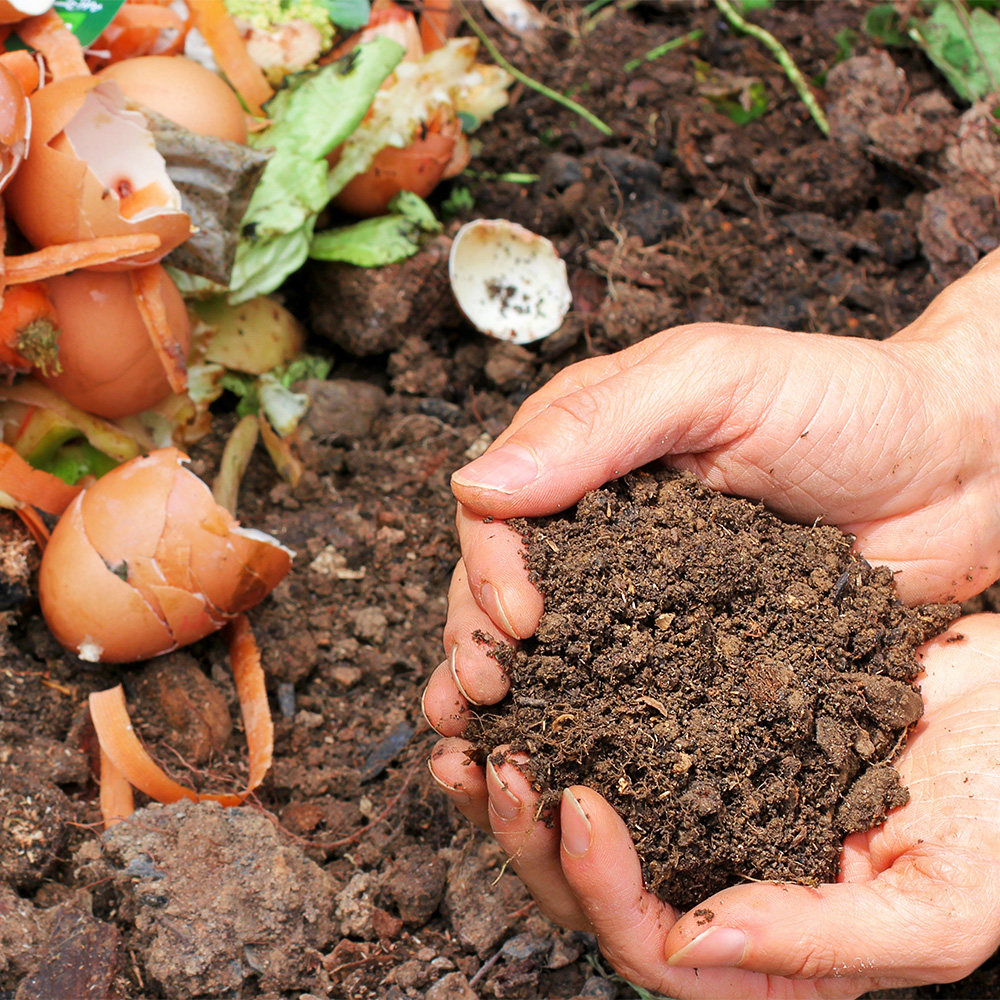Whether you’re planting trees and shrubs, annuals and perennials, or vegetables and herbs, there are five things that all plants require to survive: space, nutrients, light, water, and air. But, if you’re looking for a great garden, one that is luscious, vigorous, and thriving, the secret ingredient is the soil.
Soil is not dirt, it’s a living ecosystem. It’s really quite amazing! One tablespoon of healthy soil is bursting with billions of beneficial microorganisms, each playing a specific and important role in creating a healthy environment for plants, from breaking down organic matter to boosting soil fertility, improving soil tilth, and increasing soil water-holding capacity.
Where to begin?
A good place to begin is to test your soil. You’ll want to send a soil sample off to a testing lab designated specifically for this purpose. Test results will provide you with essential data regarding soil pH, nutrition, percentage of organic matter, and fertilizer recommendations. We can provide you with the information you’ll need to send your sample off to a soil testing lab associated with our state university’s Cooperative Extension Service. It is recommended that you test your soil yearly, preferably in the fall.
What to add?
If you have your soil tested, the results you receive back will advise which nutrients are deficient and how much of each should be added to your soil to increase declining levels. This test will also help prevent over-fertilization if your nutrient levels are already optimum. Organic fertilizers are preferred as they work slowly to improve the soil nutrition and will not burn tender plant roots.
Compost – The Secret Spice in Your Secret Ingredient
Whether you choose to have a lab test your soil or to forgo this step, it is advisable to always add organic matter in the form of compost to your planting areas! This is especially important in soils where new crops are planted yearly, such as vegetable, herb, and annual flower gardens. You may choose to use your own, home-made compost or a premium bagged product that we offer. Permanent beds should be amended heavily with organic matter before planting and top-dressed yearly to promote the healthiest soil.
Benefits of Compost to Soil:
- improves aeration
- increases water holding capacity
- enhances drainage
- adds macro-nutrients
- provides micro-nutrients
- neutralizes pH
- attracts beneficial insects
- produces happy, healthy plants
How to protect?
Now that we know why and how to improve our soil and its delicate ecosystem, how do we protect it? Here are several practices to put in place to protect your soil:
- Reduce Chemical Usage – Chemical pesticides damage or kill the good along with the bad. Always choose the safest control methods available.
- Eliminate Tilling – Prevent soil erosion, excessive weeds, and keep the soil’s ecosystem intact by reducing or eliminating tillage.
- Keep it Covered – Conserve your soil fertility and help prevent erosion by mulching ornamental plantings and using cover crops in the vegetable garden.
- Rotate Crops – In vegetable gardens, crop rotation will significantly reduce insect and disease problems, while increasing soil fertility, resulting in the reduction of pesticide use while promoting healthier, more resilient plants.


